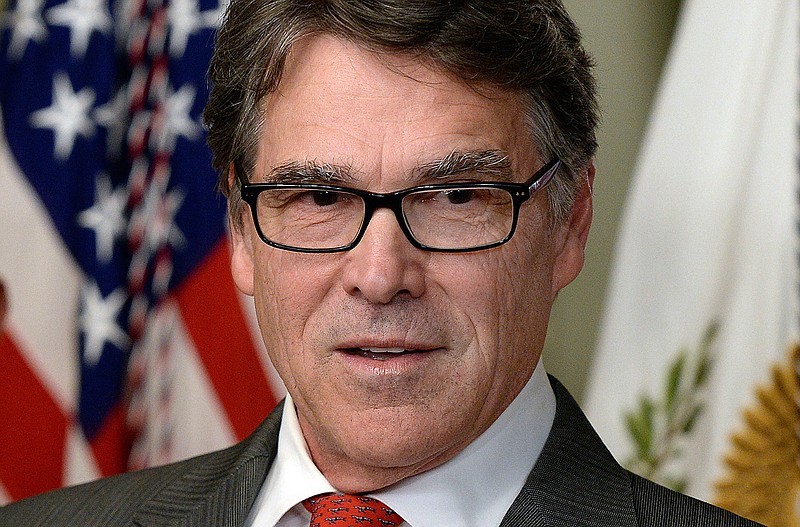WASHINGTON-Energy Secretary Rick Perry said on Friday that the recent hurricanes that battered the U.S. are a "good example of why we need an SPR"-the Strategic Petroleum Reserve that was tapped for millions of barrels of oil in the storms' aftermath.
And the former Texas governor hinted that he may have doubts about a Trump administration proposal to slash that emergency stockpile in half.
Perry said President Donald Trump had asked "very, very good questions" about whether the reserve was properly structured and if its nearly 700 million barrels was the right amount. But he also stressed that he "didn't write that budget" that proposed halving the stockpile.
The Energy Department boss added that Trump "brought me in not to agree with him on everything."
"These two storms may change everyone's opinion," Perry said at a hurricane response briefing with officials from the Homeland Security Department. "Because this has never happened before. And our job is to make sure the United States never gets surprised."
The Energy Department released about 5 million barrels of oil from the stockpile in the wake of Hurricane Harvey. Those deals, effectively loans to certain energy companies, came as the shutdown of Gulf Coast refineries stoked fears of fuel shortage in Texas and beyond.
The reserve hasn't been tapped after Hurricane Irma in Florida, Perry said.
But the use of the reserve, stored in Texas and Louisiana, nonetheless stood out. That's because the Trump administration had argued in its first budget that increased domestic production capacity, thanks to the shale boom, had reduced the need for such an expansive stockpile.
And Perry had, in fact, defended the budget proposal by saying that you could "consider pipelines to be a form of storage."
"If we are building more pipelines in this country so that we have better transportation maybe that does soften a little bit your concern about reducing some of the supplies," he told lawmakers this year.
Perry again nodded at those dynamics Friday. He said there were important questions to be asked: Is the reserve structured properly? Is the cost of keeping up the stockpile sites "year after year" worth it? Is there a more efficient way to run it?
But, he said, there was "never, from my perspective, this issue of, 'Get rid of the Strategic Petroleum Reserve.'"
That mirrors the general debate over the emergency stockpile.
The reserve has come under some scrutiny in recent years, particularly since Congress has been using it as more of an ATM for unrelated tasks. But many experts, including former Energy Secretary Ernest Moniz, argue that a robust reserve is still essential.
"Reserves in the ground can't provide us oil we need in an emergency disruption," Moniz wrote in a recent op-ed. "Increased domestic production does not equate to emergency surge capacity."
In any case, there have been few takers in Congress for the Trump proposal to sell off half the reserve. That's partly a function of the fact that oil prices remain low, meaning that the fire sale would be a bad economic deal for the government.
And Perry on Friday set a broad marker for where he stands on the stockpile.
"I'm a big believer that it makes sense for us to have a Strategic Petroleum Reserve," he said.

